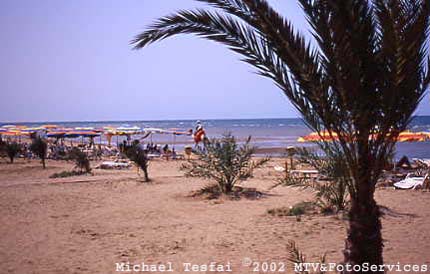|
Massawa´s buildings reflect its history of occupation. The Ottaman
Turks, who occupied the city for nearly 300 years, had the biggest influence
on the architecture.
Their successors, the Egyptians, also left a legacy of buildings and public
works, including the elevated causeway, an aqueduct and the governor´s
palace. In 1885 the Italians occupied Massawa, and the town became their
capital until is was superseded by Asmera in 1897. During this time, many
of the fabulous villas were built.
Once one of the most beautiful cities on the Red Sea, Massawa was all
but flattened during the Struggle for Independence. Around 90% of the
town was blitzed by Ethiopian blanket bombing, and great scars are still
visible. Over the last decade, the town has been energetically reconstructed.
Recently, a joint Unesco-Eritrean scheme has been drawn up to help preserve
teh town. In future, the height of buildings will be restricted to three
storeys, further development will be controlled and the streets will be
pedestrianised.
Although Massawa still far from merits its former accolade of “Pearl
of the Red Sea”, it retains a very enggaging, exotic character, which
makes it an interesting place to explore. It´s also hassle-free
and pretty safe - no mean feat for a modern, international port. One major
drawback is the heat. the average annual temperate is 29.5°C,
though it often far exceeds that, sometimes reaching
46.5°C.
With the high coastal humidity, the town can seem
like a furnace, and there´s marginal variation between day and night-time
temperatures. The best time to visit Massawa is from October to May.
|
